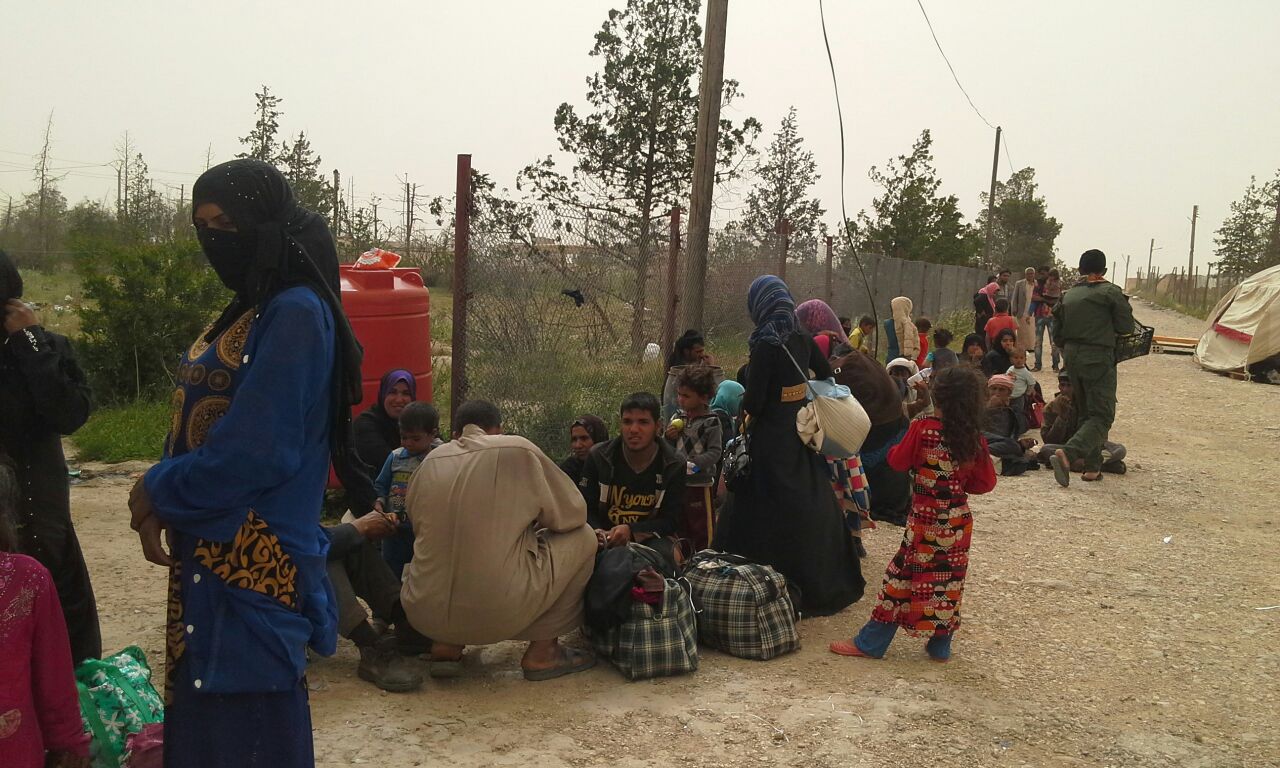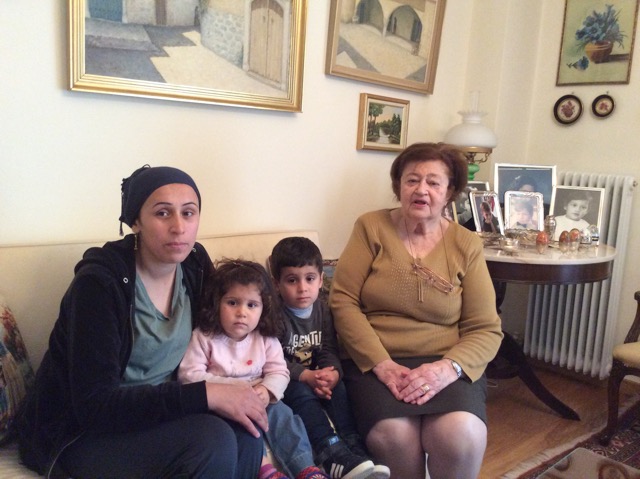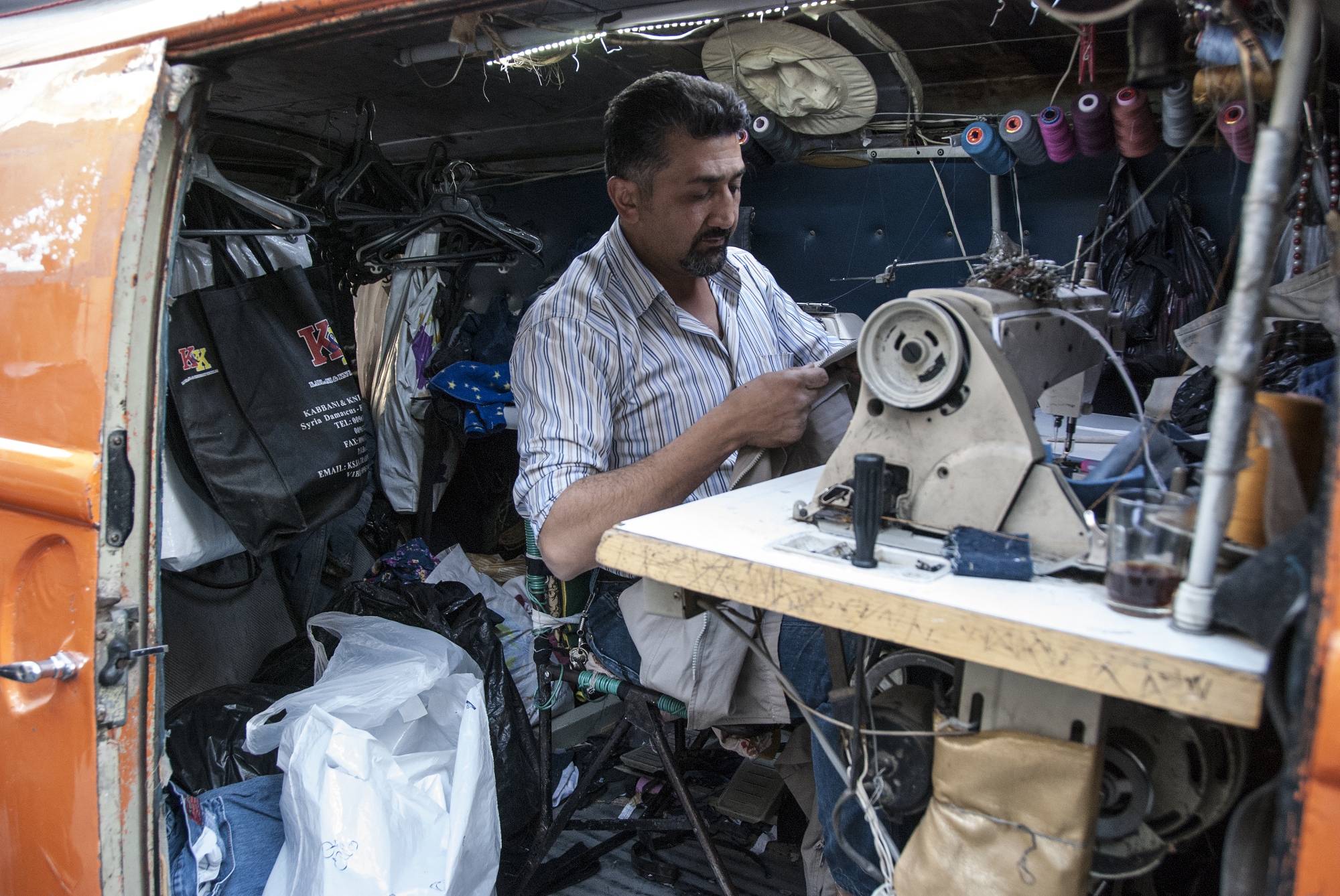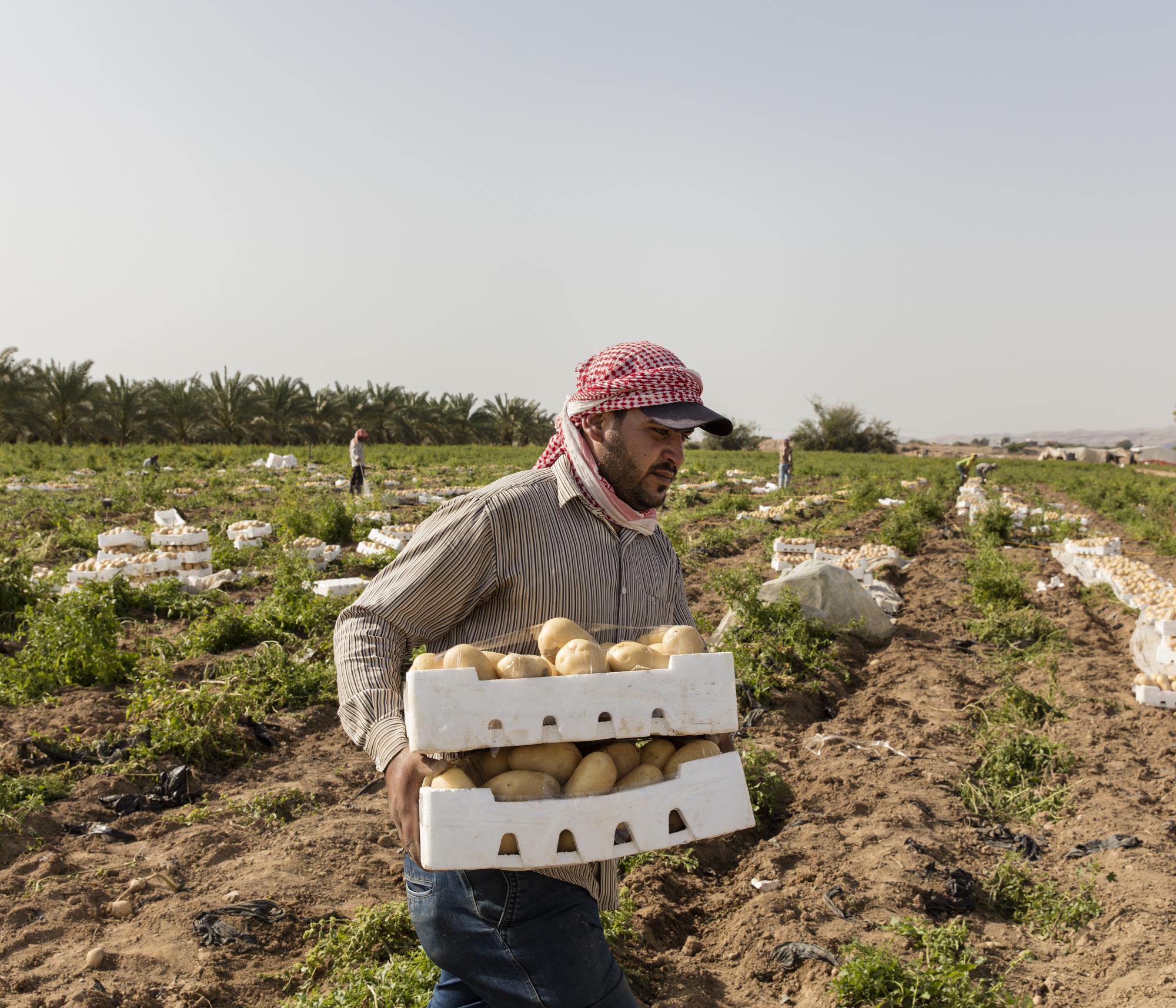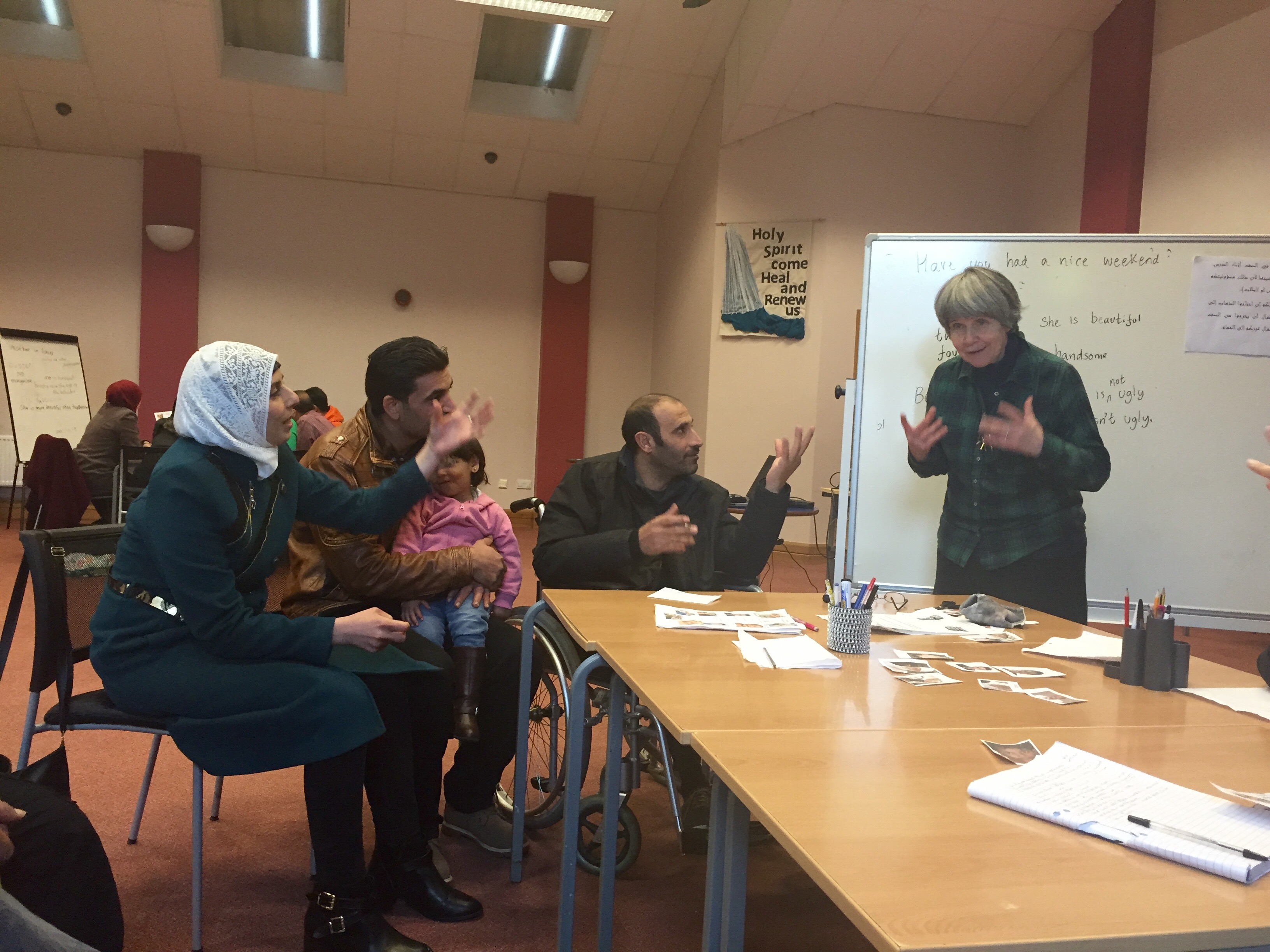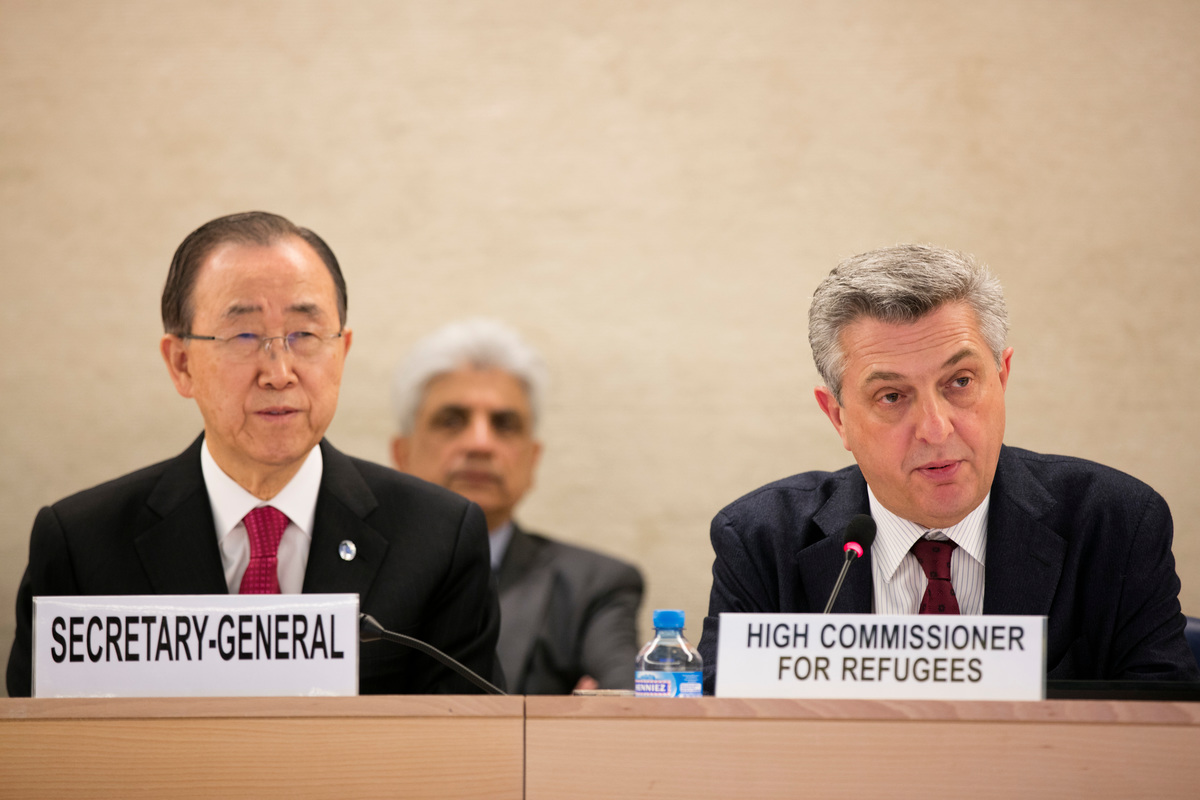UN Refugee Chief expresses grave concern over numbers of people displaced by violence in Syria
UN Refugee Chief expresses grave concern over numbers of people displaced by violence in Syria
The United Nations High Commissioner for Refugees, António Guterres, today expressed his growing concern for the dramatic numbers of people who are fleeing their homes in Syria.
"With the spread of deadly violence, I am gravely concerned for the thousands of Syrian civilians and refugees who have been forced to flee their homes," said Mr. Guterres.
Thousands of Syrians crossed into Lebanon yesterday. Reports vary between 8,500 and 30,000 people having crossed in the past 48 hours. In consultation with government authorities, UNHCR and partners are now in the field verifying numbers and assessing the profile and needs of newly arrived Syrians, with a particular focus on vulnerable people who may need immediate assistance.
With the rapidly evolving situation, it is not possible to give an accurate figure of numbers of displaced persons in Syria. As of last week, it was estimated that one million people may have been forced to flee inside the country since the conflict began. Many Syrians in general are running low on resources and are increasingly turning to the Syrian Arab Red Crescent (SARC) and other organizations for help.
Thousands of refugees, mainly Iraqi, living in the Damascus suburb of Seida Zeinab have fled their homes due to violence and targeted threats in recent days. At least two thousand have taken shelter in the Damascus suburb of Jaramana in schools and parks. Many Syrians have also moved there.
"I fear for the civilians caught up in the violence in Damascus, including the large Iraqi refugee population residing there," said Mr Guterres.
According to reports received by UNHCR, last week an entire Iraqi family of seven were found dead in their apartment in Damascus, while three other refugees were killed by gunfire.
Despite the security challenges, UNHCR staff continues to man hotlines and the Damascus, Aleppo and Al Hassekeh offices remain open. Hundreds of frightened refugees have called the hotline and outreach volunteers in the past 24 hours, reporting direct threats and fears of being caught up in the fighting.
In the past two days UNHCR distributed urgent grants to refugees who needed cash to rent apartments if they could find them and to buy basic household items, though with shops closed in many places, this is challenging. Yesterday, two truckloads of assistance were distributed by SARC volunteers in Damascus to Syrians and refugees with more distributions planned in the coming days.
UNHCR Syria has over 250 national and international staff, operating from offices in Damascus, Aleppo and al Hassakeh. There are over 88,000 registered Iraqi refugees, the majority of whom reside in Damascus, along with approximately 8,000 refugees from other countries. Over 13,000 Iraqis left Syria in the first half of 2012, the large majority returning to Iraq.
Meanwhile, UNHCR operation in Syria will increase the delivery of assistance from 125,000 to 175,000 Syrians (35,000 families) in response to growing numbers of people in need of assistance in Syria. To date, the majority of UNHCR's assistance has been delivered by SARC volunteers to vulnerable Syrians in Rural Damascus, Aleppo and al Hassakeh.
UNHCR is launching a project of one-time cash assistance for 25,000 Syrian families - drawing upon expertise from a similar scheme established for Iraqi refugees.
Constantly aiming to better understand the needs of Syrians, UNHCR monitors the delivery and use of assistance, ensuring access by vulnerable populations such as women and the elderly.
UNHCR and SARC have a network of 15 warehouses in country, some of which are jointly managed with SARC, which are stocked to ensure the rapid availability of aid. UNHCR plans to expand this network further in the coming weeks.
According to our registration statistics on 18 July, 120,000 Syrian refugees sought protection in Jordan, Lebanon, Iraq and Turkey. According to government estimates, the numbers are much higher.
"I am extremely grateful Jordan, Lebanon, Iraq and Turkey have maintained open borders," said Mr. Guterres.
Many newly arriving Syrian refugees are entirely dependent on humanitarian aid, with some coming with only the clothes on their backs, and following many months of unemployment. The needs of those who arrived earlier in the year are also increasing as their savings have become depleted. At the same time, the communities supporting the refugees are increasingly feeling the strain, with the local infrastructure and resources under severe pressure, in particular water, housing, capacity of schools and health facilities.
Two weeks after the launch of the Revised Regional Response Plan for Syrian Refugees, which encompasses the needs of 7 UN Agencies and 36 NGO partners to support Syrian refugees, the plan (amounting to US$193 million) is only 26 per cent funded. The Syria Humanitarian Assistance Response Plan, an inter-agency appeal led by OCHA to support affected Syrians inside their country, has only received US$38 million of the US$180 million required.
For further information on this topic, please contact:
In Beirut: Dana Sleiman on mobile +961 3 827 323
In Geneva: Melissa Fleming on number +41 22 557 91 22
In Geneva: Sybella Wilkes on mobile +41 79 557 91 38

